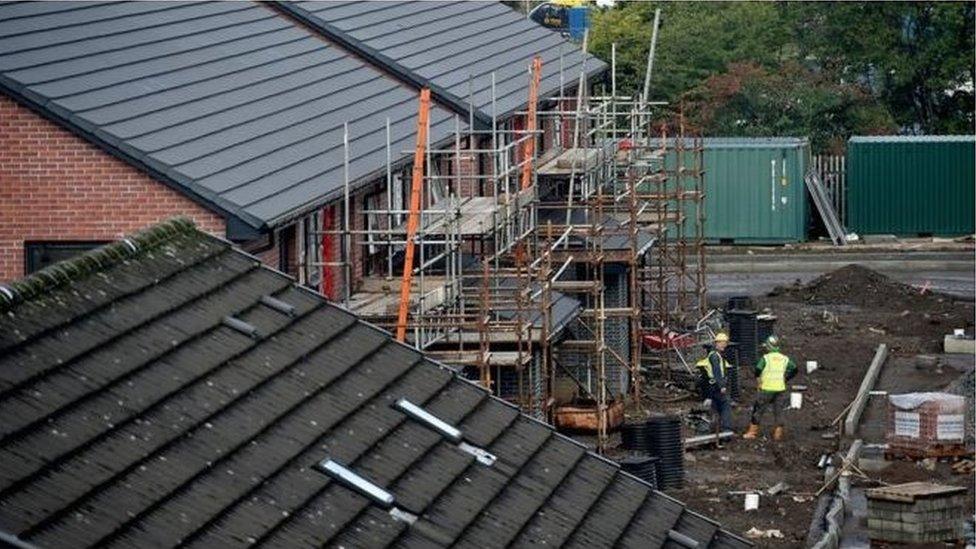Didcot HIF1: Carol singers protest against roads scheme
- Published
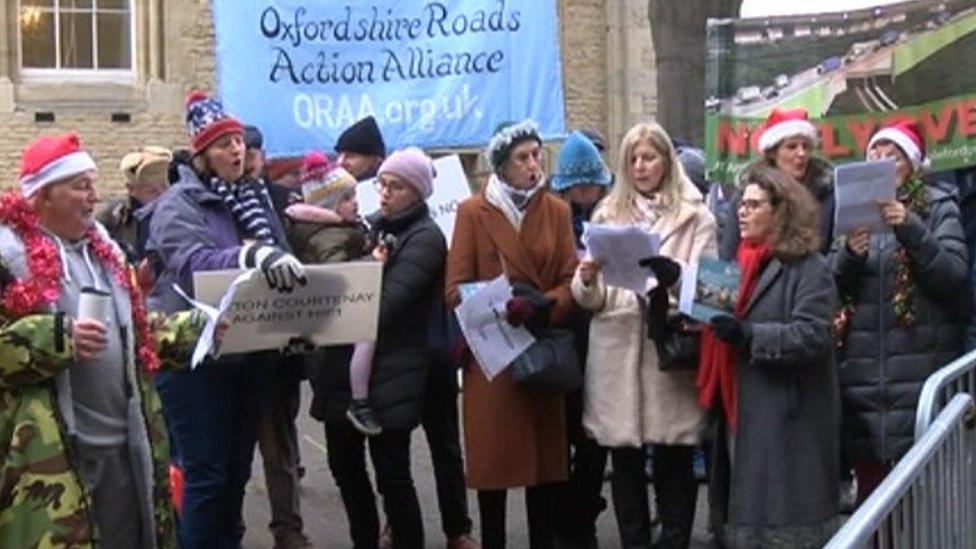
Protesters objecting to a major new road scheme gathered to sing carols outside a council headquarters.
Oxfordshire County Council's £279m Housing Infrastructure Fund programme (HIF1) aims to improve travel around Didcot.
Campaigners, who sang carols with reworked lyrics, say the scheme is not needed and goes against the council's climate promises.
But the authority insisted the programme was "vital".
Plans include creating a dual carriageway on the A4130 from the A34 Milton Interchange towards Didcot, new bridges and a Clifton Hampden bypass.
Villagers sang the 12 Days of Christmas but with lines that included "nine miles of tarmac", "six traffic jams", and "three costly bridges".
Appleford parish councillor Victoria Shepherd told the BBC: "The plans currently put forward are very road and car focussed for a council that has declared a climate emergency and wants us to move to more sustainable and active travel options."
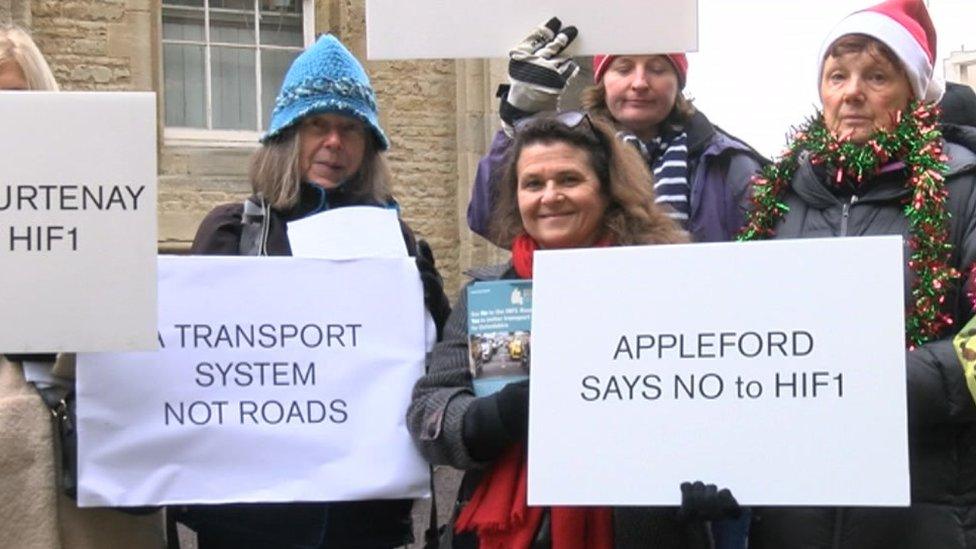
Protesters believe the scheme goes against the council's climate promises
Chris Church, campaigns officer for Oxford Friends of the Earth, said the road would "cut through open countryside" and was the "wrong solution to transport problems".
"We want to see a proper look at the transport needs of the villages, and for Didcot and Abingdon, which might make better use of the rail services, bus services, safer cycling and all the things that are in fact in the county's own transport plan," he added.

How will HIF1 be funded?
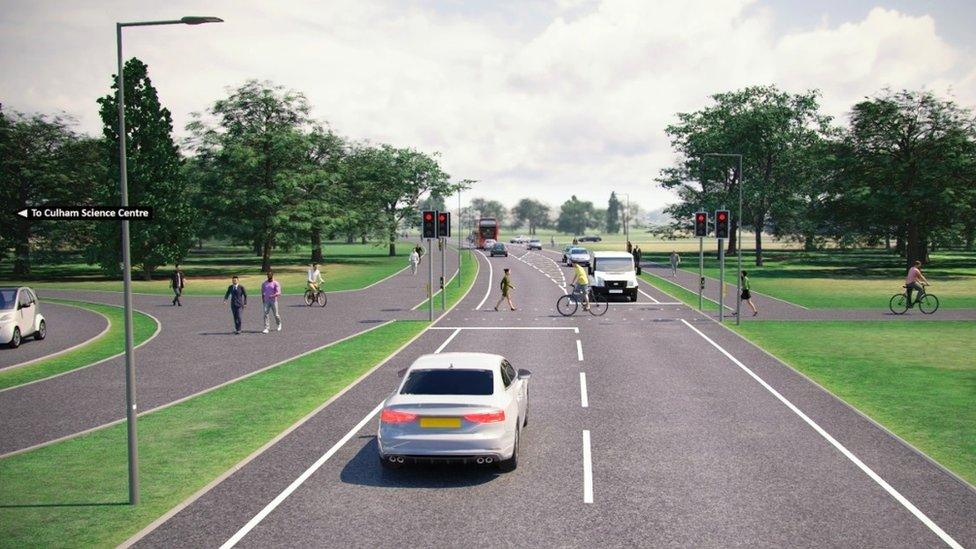
The county council said the project would provide vital transport infrastructure to reduce congestion
Homes England awarded £218m in March 2019
Section 106 developer contributions: £16m
Homes England awarded further £21.8m in early 2022
Council's capital budget: £30m
Oxfordshire Local Enterprise Partnership: £10m

Oxfordshire County Council said the scheme would "provide more sustainable travel options in and around Didcot, as well as reducing a legacy of congestion in the surrounding villages and improving air quality and noise levels".
It added: "It will also provide vital transport infrastructure to reduce congestion and enable more reliable journey times, improve pedestrian and cycling connectivity, and support allocated housing and employment sites."
It described the existing infrastructure in the Didcot area as "inadequate" and said the project was backed by Didcot Town Council and the local district councils.

Follow BBC South on Facebook, external, Twitter, external, or Instagram, external. Send your story ideas to south.newsonline@bbc.co.uk, external.
Related topics
- Published9 December 2022
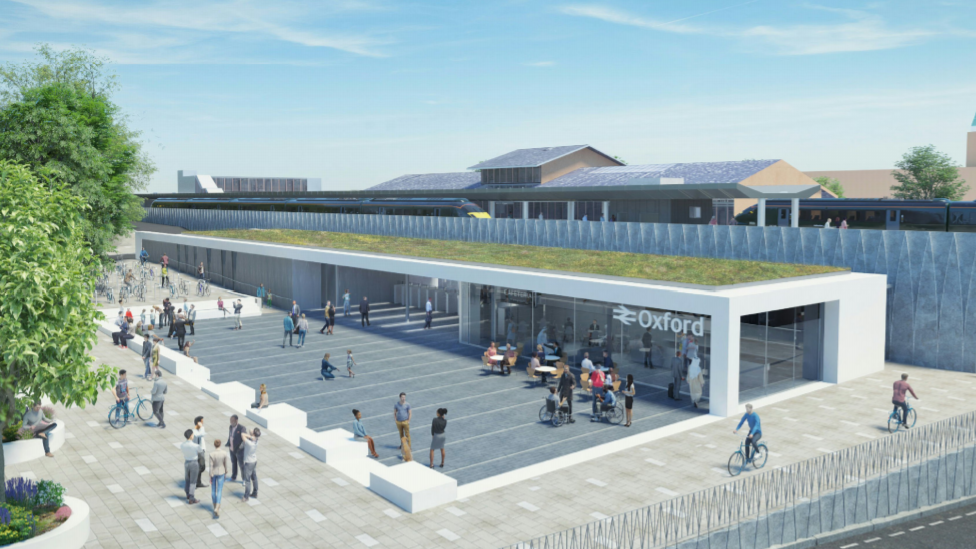
- Published7 September 2022
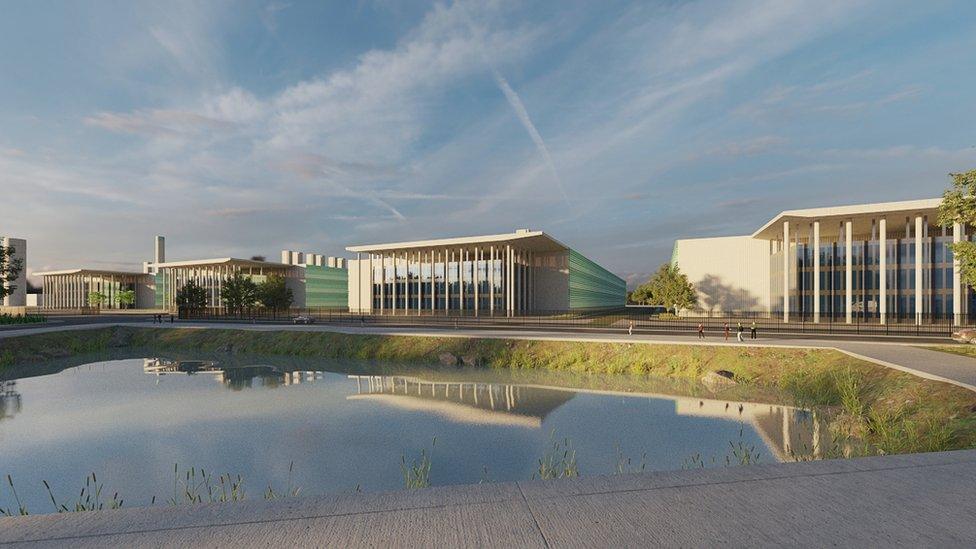
- Published29 July 2021
